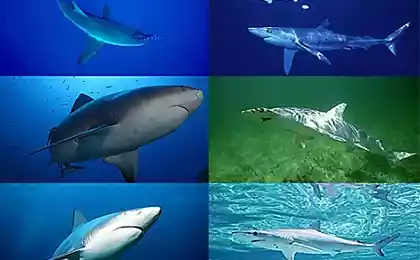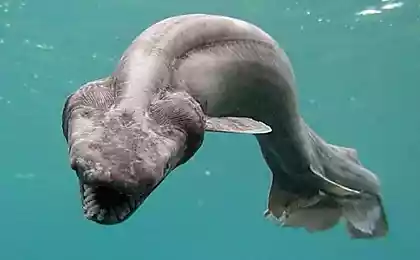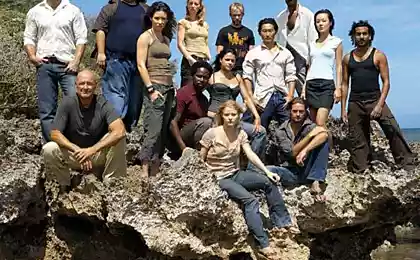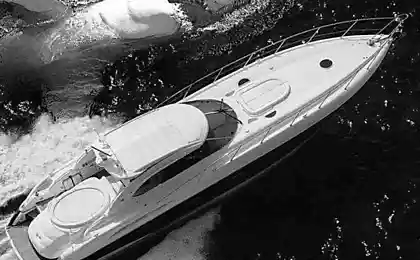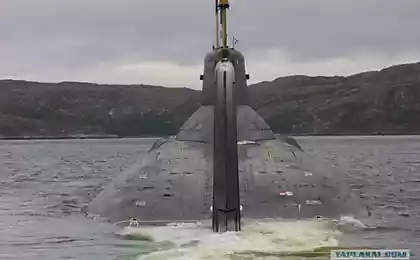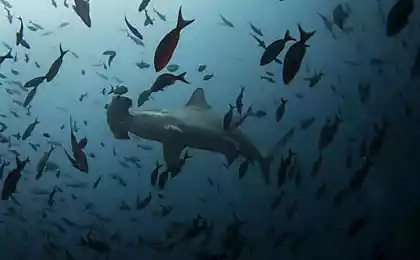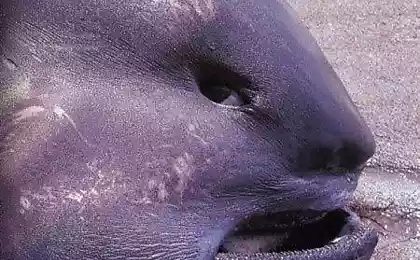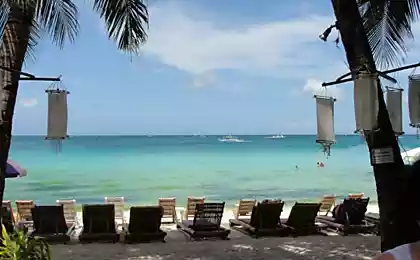1712
Whale sharks near the island of Cebu City (16 photos)
Hundreds of tourists come to the Tan-Awan, who is on the island of Cebu (Philippines), and once the village had never seen tourists, except by accident of town.
And all because of the fact that local residents began to lure the whale sharks and it lures them to the coast.
Tourists, particularly divers and snorkellers, and really enjoyed the amazing gentle giants of the sea.
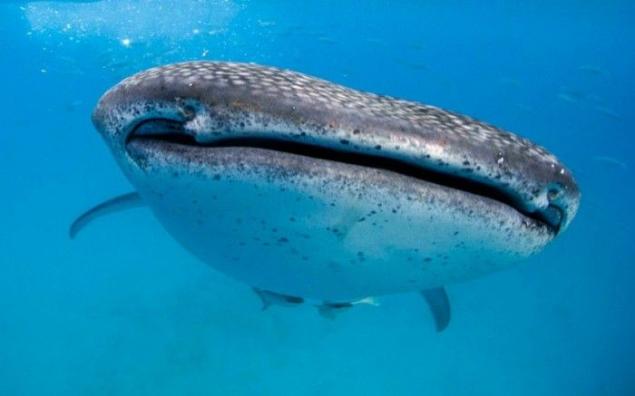
But this practice has caused a heated debate on the Internet and among biologists who condemned it as unnatural. "Some people say we lure them to stop, but if we do not feed them, how do we take a livelihood?" Said Ramonito Lagahid, deputy chairman of the Association of Fishermen Tan-Awan Oslob (TOSWFA). "We will have to go back to fishing."
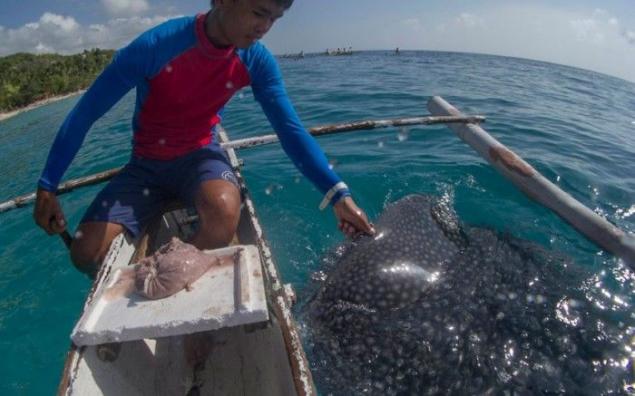
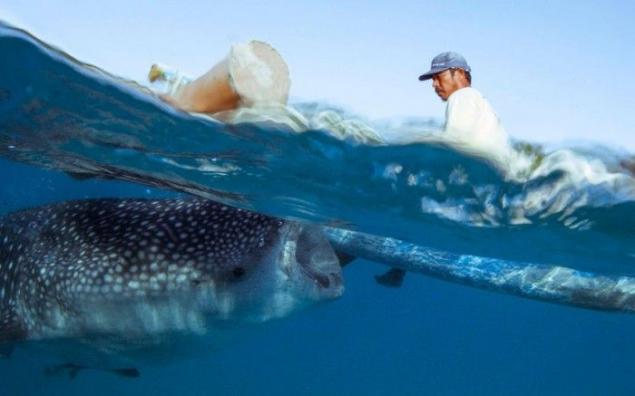
Although whale sharks reach a value of 12, 7 meters and a weight of more than 21, 5 tons, it was confirmed that they feed mainly on algae, plankton and krill. Contrary to its name, docile animals and are not dangerous to humans. A large part of their life cycle is unknown to science, including the total population. Some of them die in the fields, where they tend to congregate, and the species as a whole is considered "vulnerable" according to the International Union for Conservation of Nature (IUCN).
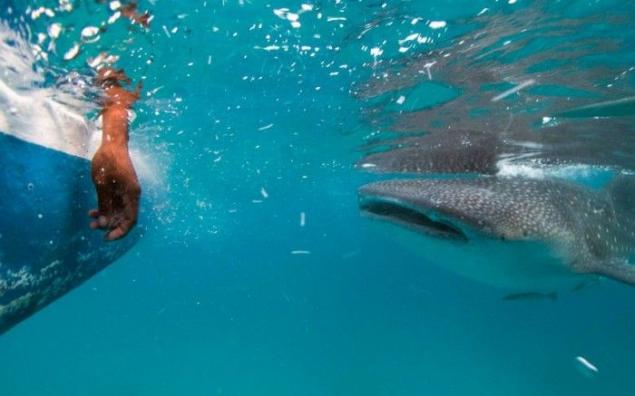
But Lagahid said that Tan-Awan always had whale sharks. He remembers that he had seen them, even when I was young. "They are always there when we go out at night to gather 'uyap', - he said, referring to a special kind of small shrimp that feed on whale sharks. "Many times we were forced to stop fishing because gathered around the whale sharks."
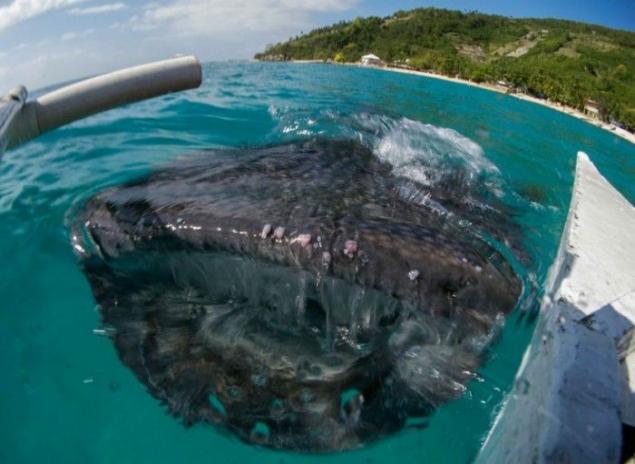
Stories about the whale sharks have spread globally about two years ago through the Internet messages from the witnesses, and tourists flocked to the village from the Philippines and around the world. During most days you can see a few hundred, but in 2012 this number peaked in 1642 a man on Good Friday in 2012.
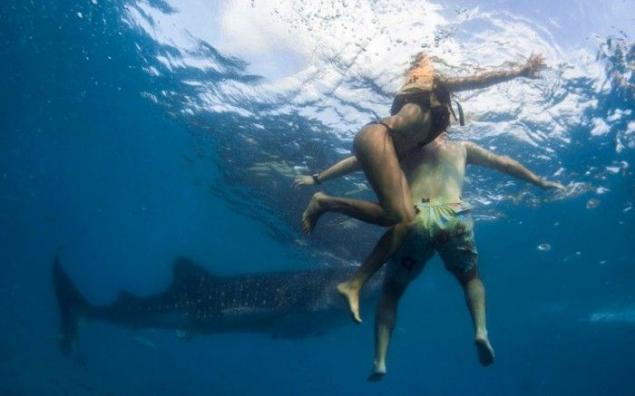
"State cooperation" whale shark the size of a football field, located about 80 meters from the beach, and feeding takes place from 6:00 am to 1:00 pm. On average, there is 8-10 whale sharks, but sometimes in the morning there are more than 20.
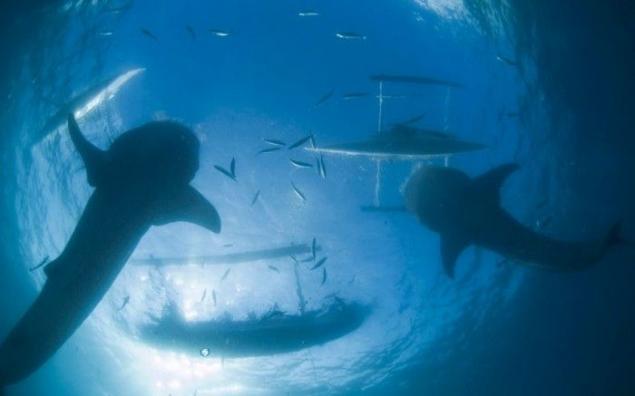
Fees for foreign tourists are in the range from 500 pesos (£ 8, 30) for the simple observation of whale sharks, and up to 1,500 pesos - plus the usual fee for diving - for the pleasure to dive with them. The money collected, and each villager, who works on this day as a guide or boatman gets between 1,000 and 1,500 pesos - a good fee for the villagers in the Philippines.

The results are obvious. Many new brick houses lined up on the short stretch of road leading to the site of feeding at the beach. "It's easier to work in the field of whale sharks, I can earn a lot of money," says 23-year-old Aiki Lagahid nephew Ramonito and fisherman who now works supervisor whale sharks and the boatman. "In the morning we otvozim guests, and in the afternoon, play basketball."
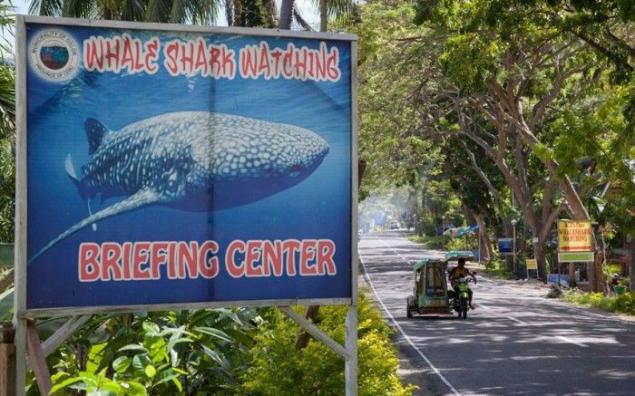
Tourists also delighted.
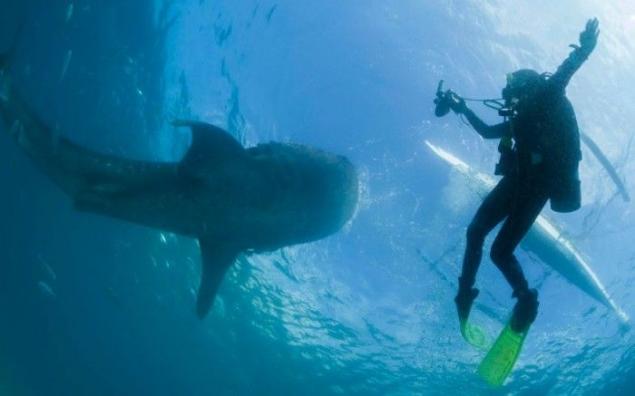
But not all enthusiastic. Biologists, in particular, fear that feeding will create long-term problems. According to the monitoring team environment Fizalus in Italy is very rare when so many whale sharks meet in such a small area on a regular basis. Feeding from a boat in the vicinity of the people are also extremely unnatural.

"It's like a zoo, circus, watch the animals, which move up and down and feed. The behavior that you see, is not natural, "- says Alessandro Ponzi, president Fizalus. "The experience you get ... it's not the same as those situations when you see them in the wild, in their natural environment. What you learn here is the use of wild life to attract tourists ».
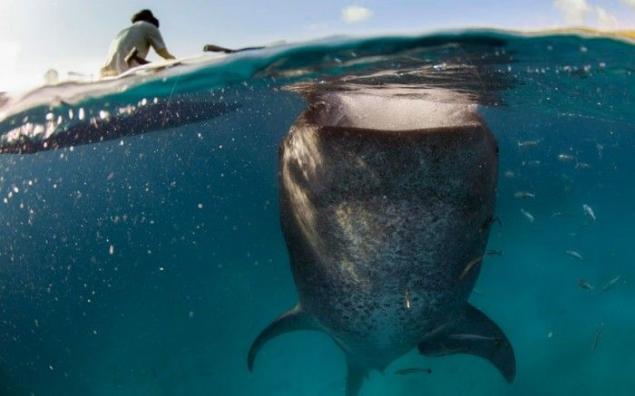
Biologists fear that the situation could lead to that whale sharks begin to develop abnormal social behavior, such as increased aggression or competition between animals. Close contact may also result in the spread of diseases and parasites.
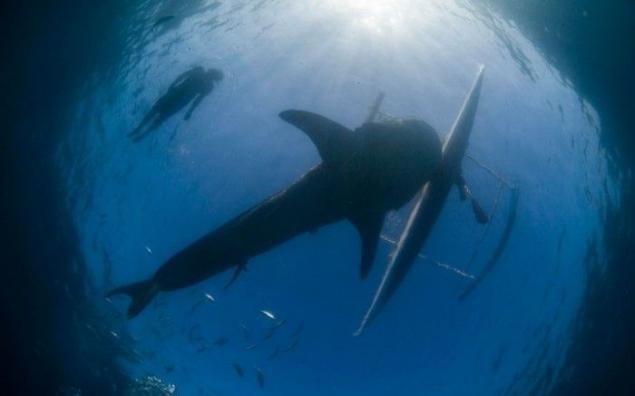
Rights group says animals that they understand the importance of tourism as a source of livelihood, but stresses that this should be organized in a sustainable way, to become a long-term opportunity. Fizalus is assessing the impact of tourism and the feeding behavior of whale sharks and hopes that their research will help local government to manage tourism with whale sharks and to minimize the impact on the environment.
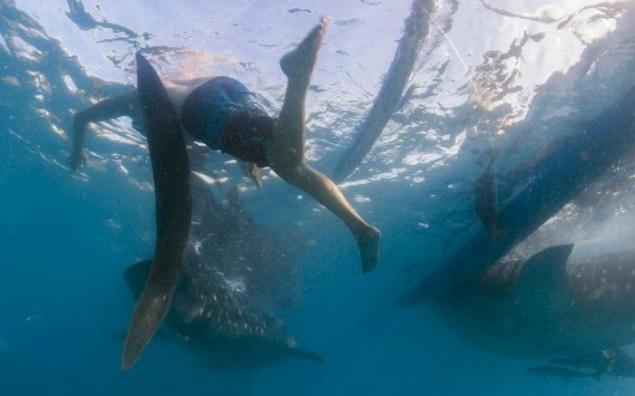
Packs small shrimp, which are used by fishermen, whale sharks feeding, loading the boat for feeding on the beach in Tan-Awan.

The whale shark approaches the boat from the beach for feeding Tan-Awan.
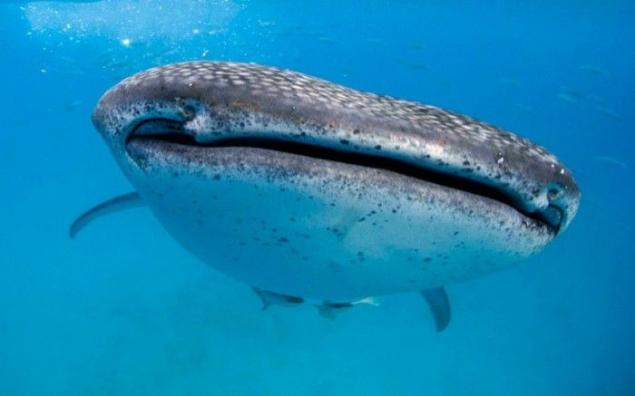
The fishermen pull their boats on the beach at Tan-Awan.
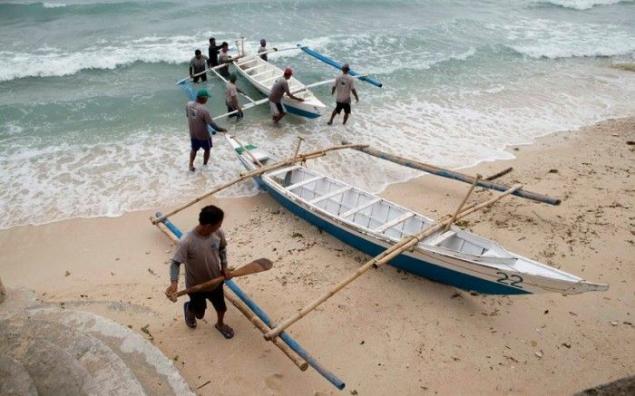
Source: m.news.zing.vn
And all because of the fact that local residents began to lure the whale sharks and it lures them to the coast.
Tourists, particularly divers and snorkellers, and really enjoyed the amazing gentle giants of the sea.

But this practice has caused a heated debate on the Internet and among biologists who condemned it as unnatural. "Some people say we lure them to stop, but if we do not feed them, how do we take a livelihood?" Said Ramonito Lagahid, deputy chairman of the Association of Fishermen Tan-Awan Oslob (TOSWFA). "We will have to go back to fishing."


Although whale sharks reach a value of 12, 7 meters and a weight of more than 21, 5 tons, it was confirmed that they feed mainly on algae, plankton and krill. Contrary to its name, docile animals and are not dangerous to humans. A large part of their life cycle is unknown to science, including the total population. Some of them die in the fields, where they tend to congregate, and the species as a whole is considered "vulnerable" according to the International Union for Conservation of Nature (IUCN).

But Lagahid said that Tan-Awan always had whale sharks. He remembers that he had seen them, even when I was young. "They are always there when we go out at night to gather 'uyap', - he said, referring to a special kind of small shrimp that feed on whale sharks. "Many times we were forced to stop fishing because gathered around the whale sharks."

Stories about the whale sharks have spread globally about two years ago through the Internet messages from the witnesses, and tourists flocked to the village from the Philippines and around the world. During most days you can see a few hundred, but in 2012 this number peaked in 1642 a man on Good Friday in 2012.

"State cooperation" whale shark the size of a football field, located about 80 meters from the beach, and feeding takes place from 6:00 am to 1:00 pm. On average, there is 8-10 whale sharks, but sometimes in the morning there are more than 20.

Fees for foreign tourists are in the range from 500 pesos (£ 8, 30) for the simple observation of whale sharks, and up to 1,500 pesos - plus the usual fee for diving - for the pleasure to dive with them. The money collected, and each villager, who works on this day as a guide or boatman gets between 1,000 and 1,500 pesos - a good fee for the villagers in the Philippines.

The results are obvious. Many new brick houses lined up on the short stretch of road leading to the site of feeding at the beach. "It's easier to work in the field of whale sharks, I can earn a lot of money," says 23-year-old Aiki Lagahid nephew Ramonito and fisherman who now works supervisor whale sharks and the boatman. "In the morning we otvozim guests, and in the afternoon, play basketball."

Tourists also delighted.

But not all enthusiastic. Biologists, in particular, fear that feeding will create long-term problems. According to the monitoring team environment Fizalus in Italy is very rare when so many whale sharks meet in such a small area on a regular basis. Feeding from a boat in the vicinity of the people are also extremely unnatural.

"It's like a zoo, circus, watch the animals, which move up and down and feed. The behavior that you see, is not natural, "- says Alessandro Ponzi, president Fizalus. "The experience you get ... it's not the same as those situations when you see them in the wild, in their natural environment. What you learn here is the use of wild life to attract tourists ».

Biologists fear that the situation could lead to that whale sharks begin to develop abnormal social behavior, such as increased aggression or competition between animals. Close contact may also result in the spread of diseases and parasites.

Rights group says animals that they understand the importance of tourism as a source of livelihood, but stresses that this should be organized in a sustainable way, to become a long-term opportunity. Fizalus is assessing the impact of tourism and the feeding behavior of whale sharks and hopes that their research will help local government to manage tourism with whale sharks and to minimize the impact on the environment.

Packs small shrimp, which are used by fishermen, whale sharks feeding, loading the boat for feeding on the beach in Tan-Awan.

The whale shark approaches the boat from the beach for feeding Tan-Awan.

The fishermen pull their boats on the beach at Tan-Awan.

Source: m.news.zing.vn
The dog had swallowed 109 stones while walking 03/14/2013
The most horrific medical instruments (10 photos)
